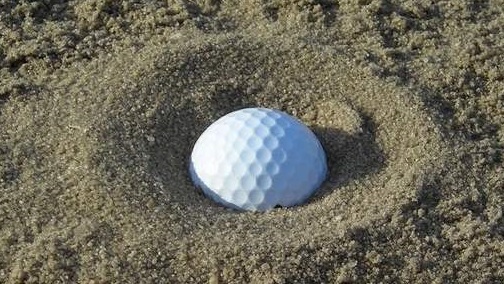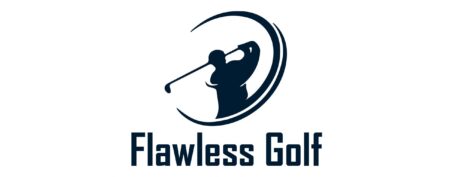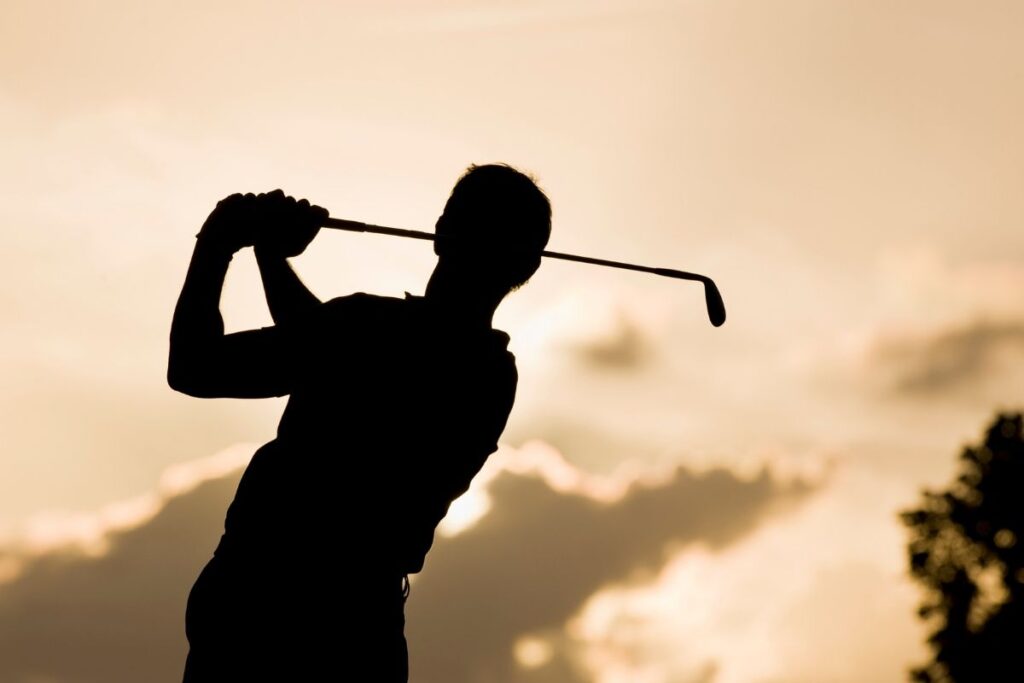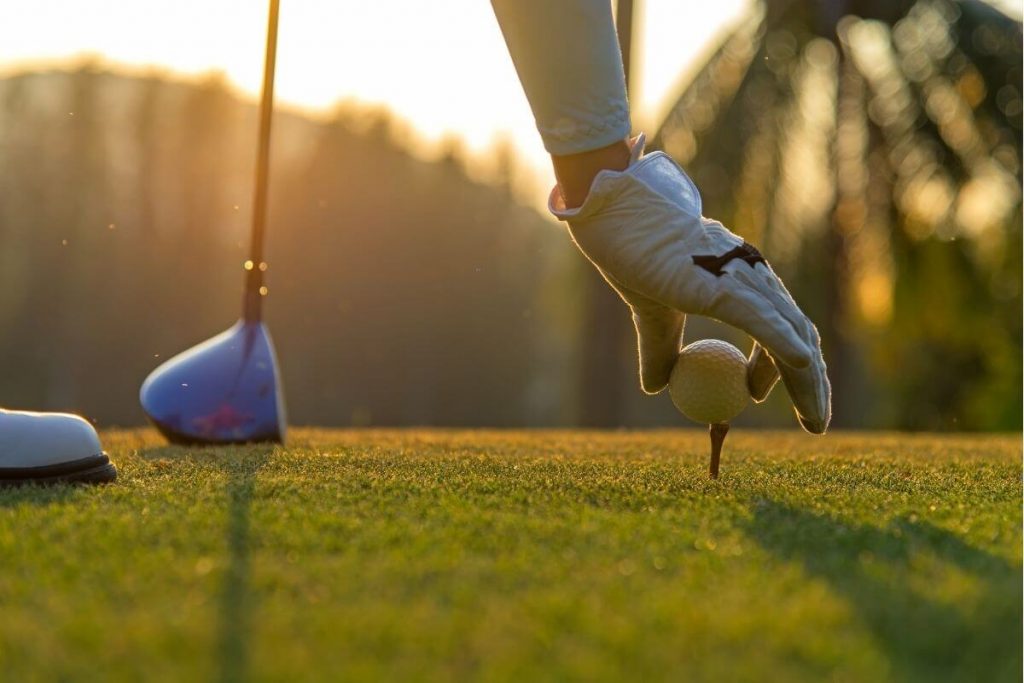When golfers hit their shot from off the tee, there is a chance that the ball will fly over in another direction and hit someone. This can result in a head injury whereby that person is admitted to the emergency room.
About 40,000 people are admitted to emergency rooms each year as a result of head injuries caused by errant golf shots and flying clubheads. Therefore, golfers must regard the safety of others when hitting a golf ball if they don’t want to end up disqualified or slapped with a lawsuit.
There are certain things you can do to minimize the risk of harm to others when you hit a golf ball. The most important and straightforward step to take is to warn others in the event the golf ball is going towards them or approaching close to them.
This begs the question, what do you say when you hit a golf ball?
Table of Contents
What Do You Say When You Hit A Golf Ball?
In short, when golfers hit a bad golf shot that is hurling towards someone, they are required to yell ‘fore’ as a warning to let the person know that they should get out of the way of the incoming golf ball. The word ‘fore’ is just a shorter way to yell ‘watch out ahead’ that allows persons to be forewarned.
It is best appreciated that you scream it at the top of your lungs so that everyone on the golf course can hear it. Another reason to yell fore is if you hit the shot of your life that you didn’t expect to hit that far. When this happens, the ball leaves your peripheral vision, so it’s responsible of you to yell fore to warn others who are down by the fairway, green or putting area.
Consequences Of Not Yelling Fore
Bad golf shots like slices, and hooks are inherent in the game of golf. But when it comes to negligence, you could get penalized for hitting someone on the golf course. This penalty comes in the form of a lawsuit.
The plaintiff who is the victim may file a lawsuit against the defendant (golfer) to cover the cost of their injury. The golfer is only liable if the plaintiff can show that the golfer’s conduct was deliberate, willful or with a reckless disregard for the safety of the other people on the golf course. Examples of such reckless behavior include:
- Hitting the golf ball without warning when persons are too close to the field of play.
- Comsumption of alcohol resulting in misjudgment and lack of skills to drive the ball safely.
- No form of remorse or apology to the player struck by the golf ball.
- Failure to yell fore
Another possible penalty for recklessly hitting someone with a golf ball is disqualification. Though there are no particular rules on this subject, Rule 1.2 set the conduct to which players should conform. It says that golfers should show consideration to others when out on the golf course. This include:
- Playing at an appropriate pace.
- Looking out for the safety of other players
- Not distracting the play of another golfer.
Still, there are no penalty under the rules for failing to conform to these conducts. They are seen as guidelines for players to follow in light of the spirit of the game.
However, if the committee finds that a golfer has committed a serious misconduct, he or she can be disqualified from the game or even banned from the golf course. Serious misconduct can be interpreted as actions like damaging the turf on the green or putting area, shouting profane language that is offensive to others, or endangering the health or safety of others.
Therefore, the committee may find it fit to disqualify a golfer who recklessly caused injury to another player.
Rules 1.2b also gives club or tournament officials the power to set their own code of ethics. This means that officials can make it a local rule to have players shout fore and even set penalties in place if they don’t apply it (Penalties like warning, stroke or disqualification).
By making use of the 1.2b rule, golf courses can see a major reduction in yearly injuries as it will ensure players shout fore to warn others of the incoming ball.
Where Did The Word ‘Fore’ Originate From?
The word fore in golf can be dated back a long time ago. The British Golf Museum sites an 1881 reference to fore in a golf book, establishing that the term was already in use at that early date. The word is also present in the Oxford English Dictionary which recorded its first use in 1878 as a warning cry to players in front of a golf stroke.
But the United States Golf Association suggests the term may have been in use as early as 1700s as the British museum surmises that the term may have evolved from forecaddie.
The forecaddie is the person who is positioned up ahead on a golf hole whose duty is to track golf shots whenever players make their stroke. By tracking the golf balls, the forecaddie is able to tell where the ball lands thereby reducing the number of lost balls.
Therefore, a feasible explanation for the origin of the word ‘fore’ could be as a result of golfers shouting ‘Forecaddie’ to draw attention that the ball is coming in. Over time, this was shortened to fore.
Common Slangs Golfers Say – Golf Lingo
Golf slangs are informal language commonly used on the golf course to connect more with other players. Slangs typically give you a sense of belonging that you are a part of a special group and they also help you to understand what someone else is saying.
There are many slangs used in the sport of golf. However, here are some of the most popular ones you will hear:
1. Dance Floor
This is a slang that refers to the putting green. If your golf ball is on the putting area, then you are said to be on the dance floor. To use it in a sentence, you simply say “I am on the dance floor”.
“You are dancing” is an alternative variation of the term when another player is letting you know that the ball is on the green.
The putting green is compared to the dance floor because it is specially prepared and it is where all eyes are on you as you sink the ball into the hole.
2. Flatstick
Flatstick is a slang for putter. The putter in golf is the club that is used to sink the ball into the golf hole. If you’ve observed the head of the putter, you will notice that it appears flat with little to no loft.
This allows the ball to stay grounded as the clubface hit the ball at low speed into the cup. Another name for the putter is wand.
3. Frog Hair
Frog hair is a slang for apron, fringe or collar around the green. These terms are used to refer to the turfgrass that is cut at a shorter length than the fairway grass but higher than the grass on the putting area.
This slang dates back as far as the early 20th century and is expressed often by Americans though it managed to spread to other territories outside the states.
4. Impregnable Quadrilateral
A slang for the Grand Slam which is an unofficial term for winning all four major golf championships in the same year. Some examples of modern grand slam winners are Jack Nicklaus, Tiger Woods, Bobby Jones and Ben Hogan.
5. Jail
Slang for when you and your ball are in very deep trouble. In golf jail, the bars are often made of bark as the ball cannot be advanced or swung at. To use it in a sentence, players will usually say “Get out of jail”.
6. Jungle
Jungle is a slang for heavy rough or densed area of trees. Golf balls that land in this area are hard to get out and in some cases the golfer fails to locate the ball due to the amount of trees.
7. Cabbage
This is used to describe when the rough is thick and deep. This thick vegetation will usually swallow balls and refuse to let them out of its grip.
8. Fried Egg
This is when the golf ball is plugged in the bunker. The resulting image looks like an egg as the golf ball is partially buried underneath the top level of the sand.

9. Loop
Slang for to caddy. Also a round of golf or a change in the path of the clubhead during the swing.
10. Tiger tee
Slang for the back tee.



